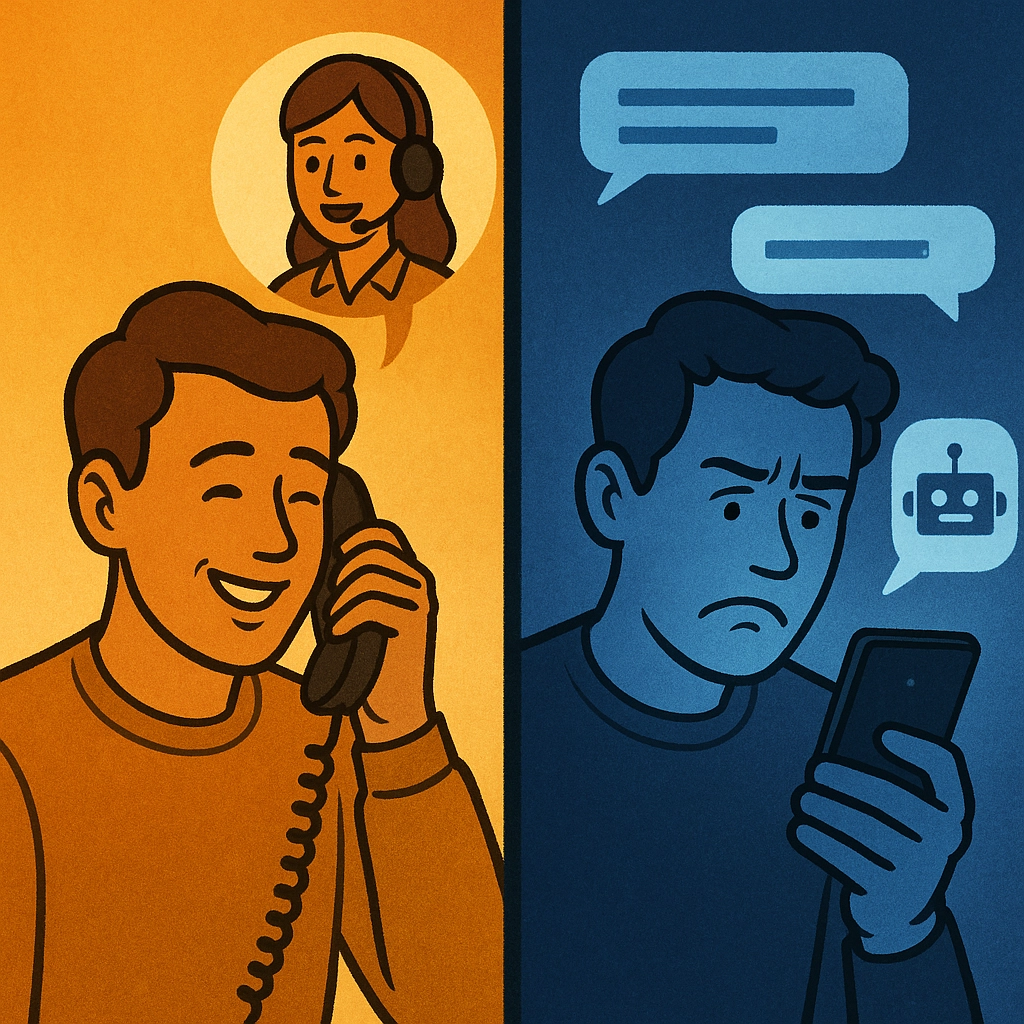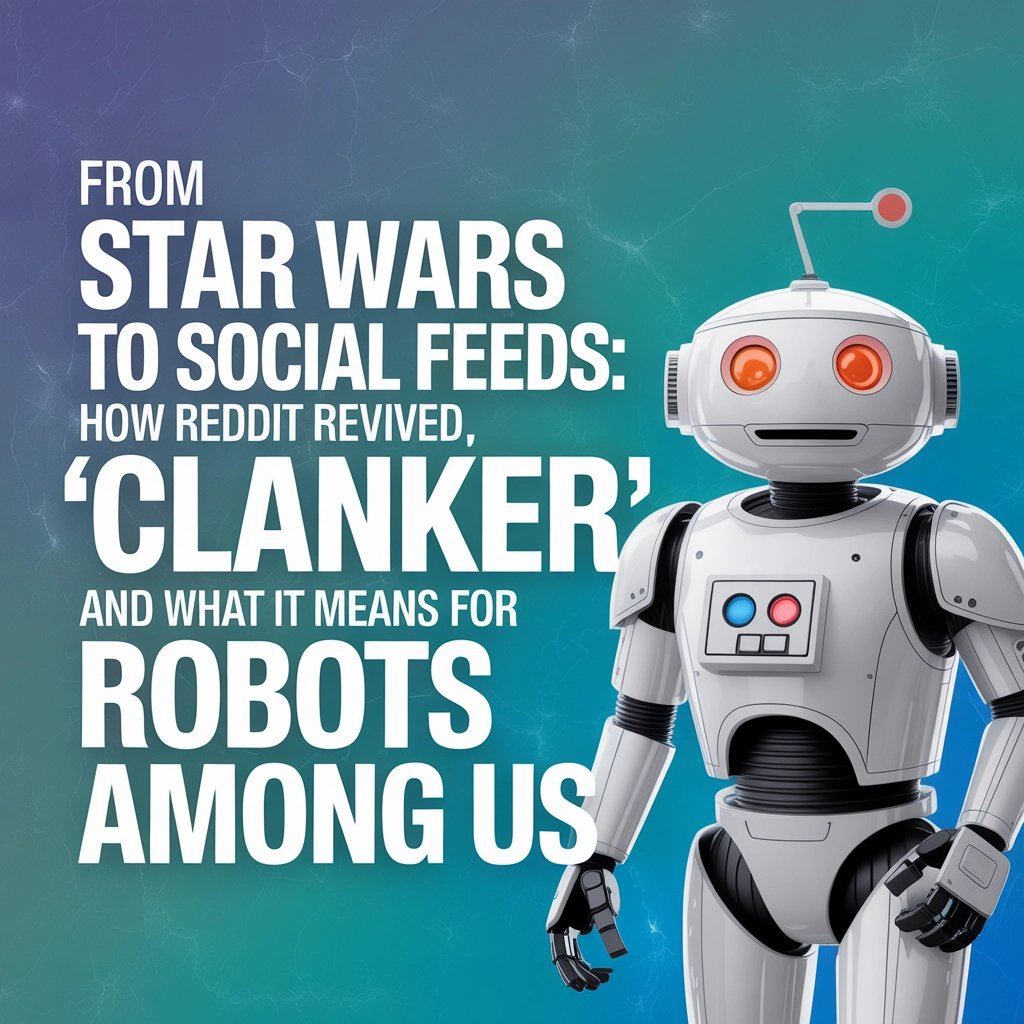Ever wonder why your Twitter feed's suddenly full of people calling ChatGPT a "clanker"? You're witnessing the birth of what might be the internet's first official AI slur – and it's got a pretty wild origin story.
What started as throwaway dialogue in a Star Wars game has somehow become the go-to insult for frustrated humans dealing with robots, AI chatbots, and automated customer service from hell. But here's the kicker: this isn't just internet trolling. It's actually revealing something pretty deep about how we're all feeling about our increasingly robotic world.
The Clone Wars Started This Whole Thing
Back in 2005, if you were geeky enough to play "Star Wars: Republic Commando," you heard clone troopers trash-talking battle droids with lines like "Nice work on those clankers!" The word just made sense – it sounded like what a rusty robot would sound like when it moved around.
The term got more screen time in 2008's "Star Wars: The Clone Wars" animated series, where clone soldiers regularly called their droid enemies "clankers." It was basically their version of calling the enemy jerks, except the enemy happened to be made of metal.
For years, "clanker" stayed buried in Star Wars subreddits and gaming forums. Reddit users in communities like r/StarWarsBattlefront would drop it casually, mostly as inside jokes about the games. It was nerd slang, nothing more.

Reddit Turned a Meme Into a Movement
But Reddit has this weird superpower – it can take the most random stuff and turn it into cultural phenomena. And that's exactly what happened with "clanker" throughout 2024 and early 2025.
Users started applying the term beyond Star Wars contexts. Got frustrated with a chatbot? "Stupid clanker." Dealing with an automated phone system? "I just want to talk to a human, not some clanker." The term began spreading from gaming subreddits to broader communities like r/mildlyinfuriating and r/antiwork.
The real breakthrough came when people realized they'd been looking for exactly this word without knowing it. As one viral tweet from January 2025 put it: "We genuinely need a slur for AI and I think 'clanker' fits perfectly." Sometimes the internet just knows what it wants.
When Politicians Start Using Your Memes, You Know It's Gone Mainstream
The moment "clanker" officially jumped from internet culture to real-world politics happened when Senator Ruben Gallego posted this on X: "Sick of yelling 'REPRESENTATIVE' into the phone 10 times just to talk to a human being? My new bill makes sure you don't have to talk to a clanker if you don't want to."
Wait, what? A sitting U.S. Senator just used Star Wars robot slang to promote legislation? That's when you know something's hit the big time.
By mid-2025, TikTok and Instagram were flooded with "clanker" content. Videos mocking AI-generated art got millions of views with captions like "When the clanker tries to draw hands again." Customer service horror stories became viral hits with titles like "POV: The clanker transferred you to three different departments."

The numbers don't lie. Posts using #clanker started getting hundreds of thousands of likes. People weren't just using it for laughs – they were using it to vent real frustration about:
• Automated customer service that can't understand basic requests
• AI taking over jobs that used to require human judgment
• Chatbots giving wrong information with complete confidence
• Being forced to interact with machines instead of people
• AI-generated content flooding social media feeds
This Isn't Just About Bad Customer Service
Here's where things get interesting. "Clanker" isn't just another internet insult – it's become a way for people to push back against what feels like an AI takeover of everything.
Think about your last few weeks. How many times did you interact with a human versus a machine? When you called your bank, got a chatbot. Ordered food, talked to an app. Needed customer support, got an automated system that couldn't help with your specific problem.
Sarah from Portland described her experience perfectly in a viral TikTok: "I needed to dispute a charge on my credit card – something that should take two minutes with a human. Instead, I spent 45 minutes trying to explain my situation to a clanker that kept asking if I wanted to know my account balance. By the time I finally reached a person, I was ready to switch banks."
That story got 2.3 million views because everyone's lived some version of it. We're all dealing with the slow replacement of human interaction with algorithmic responses, and "clanker" gives us a way to name our frustration.

The Deeper Psychology Behind the Slur
What makes "clanker" different from other robot-related terms is how it captures our specific moment in history. We're not dealing with the scary, human-like androids from science fiction. We're dealing with clunky, frustrating, half-broken AI systems that claim to be helpful but mostly just waste our time.
The word itself sounds annoyed. Try saying it – "clanker" – there's something satisfying about how it rolls off your tongue when you're irritated. It's got that hard "k" sound that makes it feel like you're dismissing something. Linguistically, it's perfect for expressing frustration.
But here's what's really wild: using "clanker" has become a form of resistance. When tech companies tell us AI is making everything better, calling their products "clankers" is our way of saying "no, it's not."
It's like when your parents got a VCR and insisted it was easier than going to Blockbuster, but you still had to program it for them every time. Except now it's AI customer service, and instead of just rolling our eyes, we've got a word for fighting back.
What Happens When Humans Create Language for the Robot Age
The rise of "clanker" tells us something important about where we are as a society. We're not just passively accepting AI integration – we're actively creating language to express our resistance to it.
This matters because language shapes how we think about things. When we have a specific word for inadequate AI systems, we're carving out mental space to criticize them. We're refusing to let tech companies control the narrative about whether AI is actually helping us.
The fact that this word came from Reddit and gaming communities before hitting mainstream social media shows how internet culture continues to influence broader society. The platforms where people feel free to express frustration are becoming the source of language that eventually reaches political discourse.

Looking ahead, "clanker" probably won't stay niche much longer. It's already showing up in customer service complaints, political discussions, and workplace conversations about automation. Companies might even start using it internally to describe AI systems that need improvement.
But the real question is whether this linguistic rebellion will translate into actual change. Will calling out "clankers" lead to better AI design, or will it just become another way to blow off steam about technological frustration?
What do you think – is "clanker" here to stay, or will we move on to the next way of expressing our complicated relationship with artificial intelligence?







